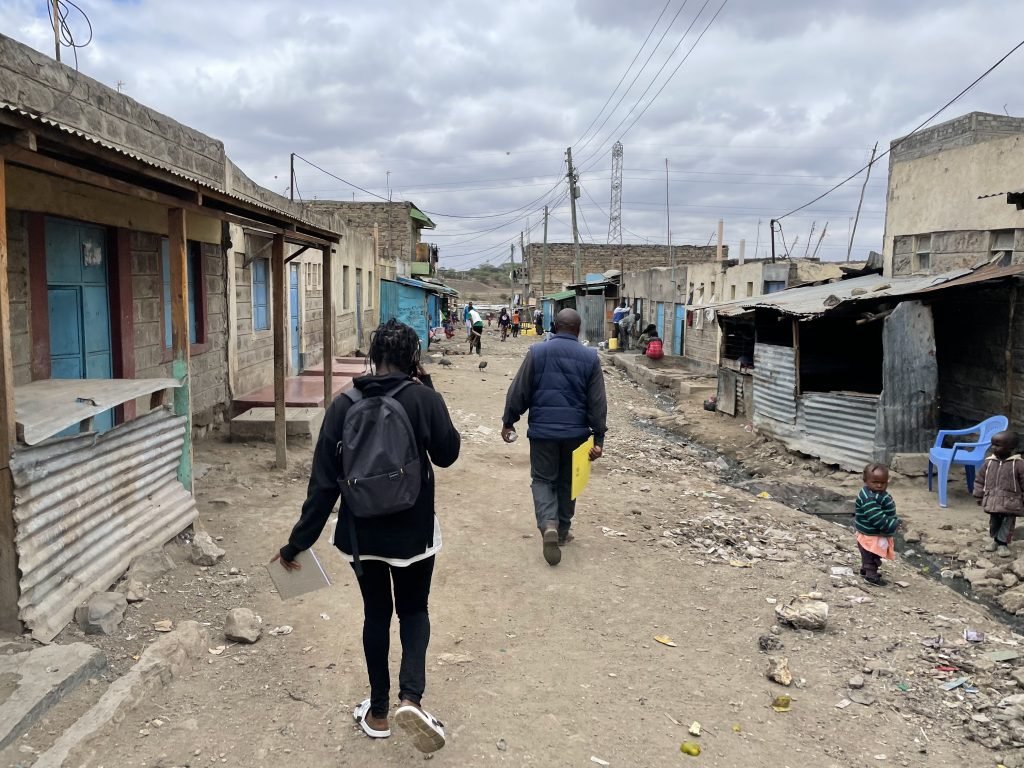[Pictured: Konstantin Yuon’s painting, New Planet, which commemorated the Bolshevik-led October Revolution in Russia.]
By Peter F. Seeger
Dialectical Materialism is a foundational principle of Marxism. This concept, along with Historical Materialism and Marxist Economics, are known as the three “component parts of Marxism.” Surprisingly, Karl Marx and Friedrich Engels did not write extensively on the idea of “Dialectical Materialism” during their lives. It was long after Marx’s death and only after Engels’ death that manuscripts could be compiled into Engels’ “The Dialectics of Nature.”
Materialism
Materialism is the philosophical opposite of idealism, which grounds itself in the concept of only one material world. Idealism believes that existence is inseparable from human perception and that reality stems from the mind. A helpful example of this Idealist thinking is Rene Descartes’ quote, “I think; therefore, I am.” In this idea the subjective thought is what confirms existence and subjective thought precedes objective existence. A materialist would rather say “I am; therefore, I think,” showing that the objective existence precedes the subjective perception of reality. Like Dialectics, the philosophy of materialism can be seen as far back as the ancient Greeks of Anaxagoras (c.500 - 428 BC) and Democritus (c.460 - c.370 BC). Marx was known to have been inspired by early materialists like Francis Bacon, Thomas Hobbes, and John Locke.
Materialism posits that matter objectively exists independently of whether we subjectively perceive it. “Materialism in general recognizes objectively real being (matter) as independent of consciousness, sensation, experience… consciousness is only the reflection of being, at best an approximately true (adequate, perfectly exact) reflection of it.”[1] Since matter exists whether we perceive it or not, then matter must precede subjective perception. Although Marx’s materialism, is not a rigid materialism and must be combined with dialectics to form the full theory followed by Marxists.
Dialectics
The concept of dialectics has existed for centuries. Philosophers like Plato demonstrated an idealist form of dialectics which functions like a conversation. One person presents an argument (a “thesis”), and another presents a counterargument (an “antithesis”). Through conversation, dialogue, and counterargument, the two achieve a better understanding and more correct solution to their issue, a “synthesis.” The “synthesis” then becomes the “thesis” again and will always have an “antithesis” to counter it. This simplified explanation is often used to explain idealist dialectics but is not true to the dialectics that Marx would have been familiar with as a member of the Young Hegelian Society.
Marx and Engels were followers of Hegel and learned an immense amount from the philosopher. Vladimir Lenin also praised Hegel for his ideas on dialectics and even encouraged the reading of Hegel for all Marxists. Although Hegel is the basis for Marx and Engels’ dialectics, Hegel is an idealist and therefore dissimilar to Marx’s Dialectical Materialism in that way. Dialectics, to Marxists, "is nothing more than the science of the general laws of motion and development of nature, human society and thought."[2] There cannot be a slave without a master, an exploited without an exploiter, nor a proletariat without a bourgeoise; therefore, they must appear at the same time due to their dependency on the other and in a unity of their opposites.
Dialectical Materialism
Engels’ writings on Dialectical Materialism are where Marxists receive the bulk of this concept. Engels determined three laws of Marxist Dialectical Materialism: (1) The unity and struggle of opposites, (2) the transformation of quantity into quality, and (3) the negation of the negation.[3] Briefly going through these one by one is useful for this complicated theory.
(1) The Unity and Struggle of Opposites:
“The law of contradiction in things that is, the law of the unity of opposites, is the basic law of materialist dialectics.”[4] Every object is made up of two contradictory aspects that together make up the whole in unity and in contradiction. This constant state of opposites is never ending, in constant motion, and always changing; this is also known as the law of contradiction. This is, to Marxists, scientific and can be observed in nearly every field of science. “In mathematics: plus, and minus; differential and integral. In mechanics: action and reaction. In physics: positive and negative electricity. In chemistry: the combination and dissociation of atoms. In social science: the class struggle” between the proletariat and the bourgeoisie.[5] This leads Marxists to look to the material world around them and find the core contradictions within society to best understand how it functions.
A contradiction is “when two seemingly opposed forces are simultaneously present within a particular situation, an entity or an event.”[6] Within a contradiction there are aspects of the contradiction, which are the two forces that both function in opposition and unity. The term “Contradiction,” itself is rarely used in Marxism in the singular form because there is a never-ending number of contradictions found in everything, not just capitalism. A common misconception is the belief that Marxism believes in a one size fits all approach to societies and cultures, but inherent in the concept of a contradiction is the understanding that everything has its own internal and external contradictions that determine its resolution.
An example of this complex idea may be found using contradictions as applied to a rock and an egg. Within both objects there are internal contradictions inherent to each’s existence, (erosion or the need for specific conditions for a healthy birth) but both would react and resolve differently when acted upon by the same external contradiction. If you apply the specific temperature to the rock and the egg you may end up with a chicken or a warm stone. The resolutions of these contradictions are dependent on not just the aspects of the contradiction, but the contradictions within the aspects themselves.
The final point on contradictions is that while the concept is universal, i.e., it can be applied to areas outside Marxism such as in nature, it also comes with the belief that there is a “principal” or “primary” contradiction[7] that determines or influences the current or “secondary” contradictions in the world. This “principal” contradiction, according to Marxists, is the class contradiction between the proletariat and the bourgeoisie. An example of a “secondary” contradiction influenced by the “principal” contradiction could simply be the competition between businesses for profits.
(2) The Transformation of Quantity into Quality:
Gradual quantitative changes in society give rise to revolutionary qualitative changes. Since all matter is always in motion and changing, these changes function as a quantitative change until it gives rise to a qualitative change which fundamentally alters the matter into something materially different. The implications of this concept show the basis for why or how revolutions occur. True change only comes from qualitative change. For example, water remains a liquid while it gradually cools down, but there is a certain point where the quantitative change of the temperature creates a qualitative change when the water becomes ice. When applied to the social sciences, according to Marxists, the quantitative changes represent the contradictions in capitalism and the qualitative change would be a revolution. Marxists view matter as interconnected, in perpetual motion, and always changing. Darwin’s theory of evolution grounds this idea in the sense that evolution shows the interconnectedness of matter and its perpetual change. Not only does Darwin’s theory of evolution imply the interconnectedness and constant change of all matter, but also shows that this process has been ongoing for billions of years, processes of dialectical development between contradictory or opposing forces.
Qualitatively different contradictions can only be resolved by qualitatively different methods. For instance, the contradiction between proletariat and the bourgeoisie is resolved by the method of socialist revolution; the contradictions between the working class and the peasant class in socialist society is resolved by the method of collectivization and mechanization in agriculture; contradiction within the Communist Party is resolved by the method of criticism and self-criticism.[8]
(3) The Negation of The Negation
This concept can be simply explained as when the new supersedes the old. Before the quantitative changes lead to the qualitative transformation, this is the first negation. The second negation occurs at the time of the qualitative transformation.
The capitalist mode of appropriation, the result of the capitalist mode of production, produces capitalist private property. This is the first negation of individual property, as found in the labor of the proprietor. But capitalist production begets, with the inexorability of a law of nature, its own negation. It is the negation of the negation. This does not re-establish private property for the producer, but gives him individual property based on the acquisitions of the capitalist era: i.e., on cooperation and the possession in common the land and the means of production[9]
This “negation and transformation” is not meant to mean that the “new” is devoid of any aspects of the old. This is paramount in understanding the ongoing struggle that will continue during a socialist transition. Marxism believes that in the social sciences, once societies have qualitative changes, remnants of the old society will still exist and will have to be governed by the laws of the new society. After feudalism, slavery was still within the society although the new system was built from the old system of slavery for labor. Further, once feudalism was superseded by capitalism old remnants of feudalism remained including landlords and slavery. Even under socialism, the remnants of capitalism will still exist in society. This shows that the qualitative change is also in constant motion and in contradiction with itself which must be resolved for the long-term goal of communism.
These laws make up the foundations of dialectical materialism: all matter is interconnected and always changing due to the dialectical forces of contradictions within society, and this posits the inevitability of a qualitative change from capitalism to socialism.
Notes
[1] Vladimir Lenin, The Collected Works of V. I. Lenin, Collected Works 38 (Moscow: Progress Publishers, 1976), https://www.marxists.org/archive/lenin/works/cw/pdf/lenin-cw-vol-38.pdf. pp. 266-67
[2] Friedrich Engels, Anti-Dühring, Foundations 26 (Paris: Foreign Languages Press, 2021), https://foreignlanguages.press/wp-content/uploads/2021/11/C26-Anti-Duhring-1st-Printing.pdf. pp. 152
[3] Friedrich Engels, Dialectics of Nature (Moscow, Russia: Progress Publishers, 1954).
[4] Mao Zedong and The Redspark Collective, Mao Zedong’s On Contradiction: Study Companion, New Roads 4 (Paris: Foreign Languages Press, 2019), https://foreignlanguages.press/wp-content/uploads/2020/08/N04-On-Contradiction-Study-2nd.pdf. pp. 2
[5] Lenin, The Collected Works of V. I. Lenin. pp. 136
[6] David Harvey, Seventeen Contradictions and the End of Capitalism (London, England: Oxford University Press, 2014). pp. 1
[7] In Marxism the principal contradiction is not fixed. Through history the principal contradiction will change and be foreign to contemporaries.
[8] Zedong and The Redspark Collective, Mao Zedong’s On Contradiction: Study Companion. pp. 28-29
[9] Karl Marx, Capital, vol. I, III vols. (UK: Penguin Classics, 1990). pp. 929









